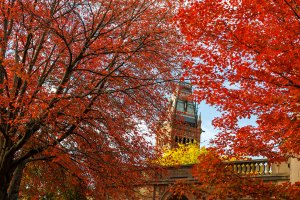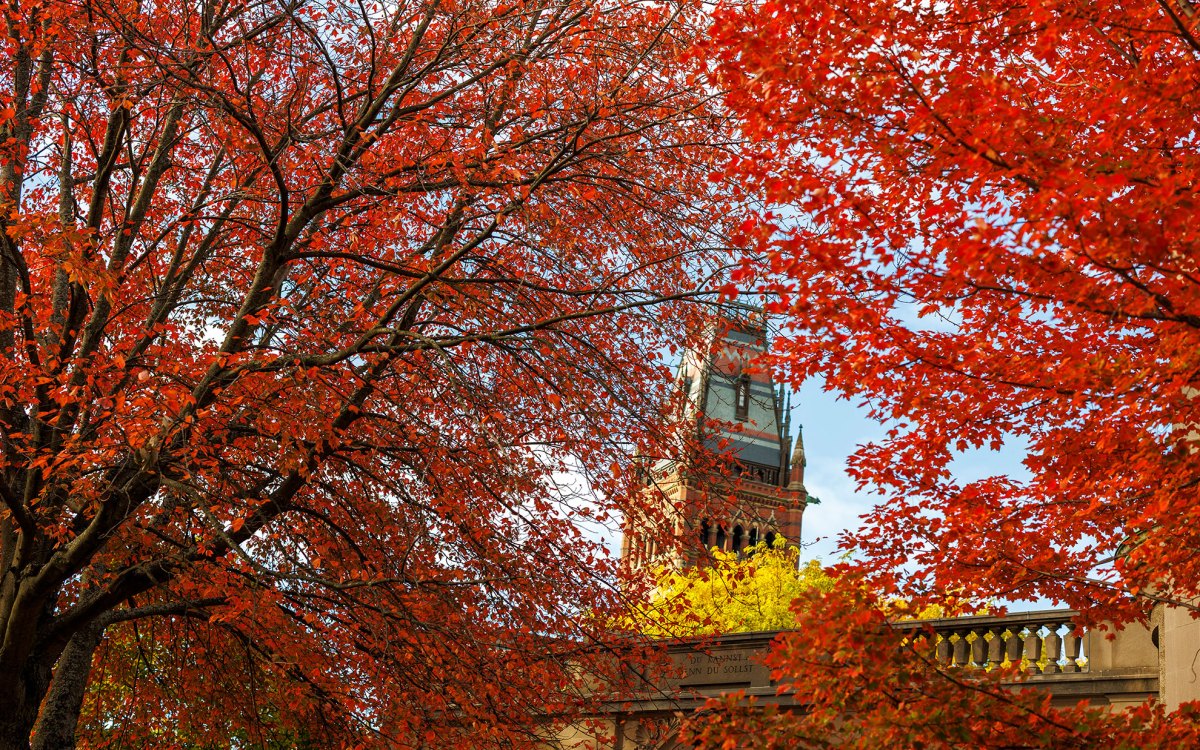From deep springs
David Wax: Singer/songwriter/public servant
“Down to earth” is the phrase that is probably most often used to describe David Wax. Most people don’t mean it literally, but considering Wax’s background, it is particularly apt.
Though he was born in Columbia, Mo., Wax came to Harvard by way of the High Desert Sierra region of California, where he attended the tiny – 26 students – Deep Springs College, a two-year all-male school that emphasizes oral and written expression, requires at least 20 hours a week of physical labor from each student, and maintains a philosophy of self-governance, giving students the responsibility for hiring teachers, setting policies, and admitting the next year’s class.
“Deep Springs is really intense,” says Wax. “It can break you, but it helps you put everything back together. Students who come out of there have really high standards for themselves, and also for the communities they become part of. There’s an ethic of service that people take seriously, and a high degree of responsibility, not just in the rigorous course work, but in how you engage with the world.”
Wax has engaged with the world to a degree that is unusual for one so young. Nearly half a lifetime ago, at age 13, he began writing songs, and has now cataloged more than 100. Most, he says, are about relationships and life in Latin America and many are now on CDs, including his latest, self-released title, “New Pair of Eyes.” Though performing gigs have lately taken a back seat to his academic work at Harvard – his adviseors expect he will graduate with high, possibly the highest, honorssumma cum laude – he is keeping up with his songwriting by taking poetry classes every chance he gets.
Among the payoffs is his recent acceptance to a yearlong Gardner, Shaw, Sheldon, and Trustman Frederick Sheldon traveling fellowship to study traditional and contemporary folk music in Mexico, a country he “fell in love with” after two summers doing rural community development work in San Luis Potosí – which also led him to his current job with Oxfam. “I’m working with activists across the country to get them engaged with their local community,” Wax says. “It’s a new initiative called Adopt a Supermarket. It’s basically to educate people about fair trade and increase the market size for Ffair -Ttrade products.”
He may think globally, but one of Wax’s most important forays off the beaten path was as local as they come. “I took a year off between leaving Deep Springs and coming to Harvard,” he says, “because we knew my grandfather’s Alzheimer’s was getting worse.” When Wax took breaks from Deep Springs to visit his grandparents, he says, he “got to know them as people and become friends with them.” He lost his grandmother while he was living in California, but was determined to insure ensure his grandfather’s voice lived on for future generations. He went to Minneapolis and acted as the older man’s caretaker for four months, partly to relieve his aunt and uncle of the duty, but also to record an oral history.
“The clarity of his long-term memory was incredible,” Wax says of his grandfather, who passed away in November. “He was captain of a Navy ship in World War II, with extremely vivid war memories, and he was also a gardener, growing vegetables and raspberries, so I learned a lot about that from him, too. It was really a wonderful experience.”
It’s just that kind of voraciousness for experience – of all sorts, including the bittersweet variety – that leads to Wax’s “down-to-earth” label. “David is highly idealistic but also incredibly grounded,” says Steven Biel, director of studies in history and literature at FASthe Faculty of Arts and Sciences. “He’s achieved a tremendous amount, but accumulating honors and awards – adding credentials and building a resume – doesn’t really seem to be what drives him. I think he’s driven more by a genuine passion for ideas and involvement.”




